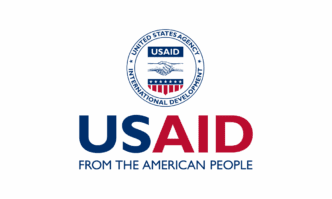In a move that has sent shockwaves through Washington and beyond, the Trump administration has mandated the withdrawal of almost all staff from the U.S. Agency for International Development (USAID). This order comes amidst ongoing efforts by the administration and its allies, notably Elon Musk, to significantly restructure foreign aid programs administered by the agency.
The abrupt decision to pull USAID workers from their posts has ignited protests in Washington, with demonstrators expressing frustration at what they perceive as an unlawful act. Democratic lawmakers, including Sen. Tim Kaine and Sen. Mark Warner from Virginia, have vocalized their opposition, promising to challenge the changes. Amidst these protests, accusations of corruption have surfaced, with Maryland Sen. Chris Van Hollen labeling the situation ‘the most corrupt bargain in American history.’
Marco Rubio, the Secretary of State, has defended the decision, stating the administration’s intent to reorganize foreign aid to better align with U.S. national interests. However, this explanation has done little to quell the anxiety among aid workers and the international community who fear the cessation of critical development programs. Rubio suggested the evaluation of each program’s value, but offered no concrete evidence for the claims of obstruction that have justified the administration’s actions.
Critics argue that the dismantling of USAID threatens to undermine significant projects worldwide, including healthcare initiatives and educational programs. Jennifer Kates from KFF highlighted the potential closure of over 1,200 clinics, affecting millions of women and children. The impact extends beyond aid recipients; USAID contractors, particularly in volatile regions, have expressed concerns about their safety and employment status following the shutdown.
Furthermore, the sudden freeze on agency spending has left thousands of staffers, both in Washington and overseas, in a state of uncertainty. Emergency meetings at U.S. embassies have provided little clarity, leaving employees, especially local hires, anxious about their future. A USAID contractor, speaking under anonymity, described the removal of communication tools as a severance from crucial support channels, exacerbating fears of being stranded in foreign countries.
International reactions have been mixed but predominantly critical. South African Health Minister Aaron Motsoaledi expressed urgency in addressing the funding freeze impacting PEPFAR, a key HIV/AIDS program. South Africa, hosting the largest population of HIV-positive individuals globally, relies heavily on this aid, raising concerns over potential disruptions to vital healthcare services.
The restructuring of USAID is perceived as not merely a domestic issue but a strategic shift with global repercussions. Proponents see it as a necessary realignment of foreign assistance, yet opponents warn of ceding influence to global rivals such as China and Russia. The Trump administration maintains that the restructuring is essential for aligning with conservative agendas and cutting perceived waste, but this view is not universally shared.
The directive to withdraw USAID staff underlines the administration’s intent to reshape foreign aid policy drastically. While Secretary Marco Rubio asserts the move is in the national interest, it has undoubtedly sparked widespread concern and debate over its implications. The hastily executed plan leaves questions about the future of international aid and America’s role in global development.








